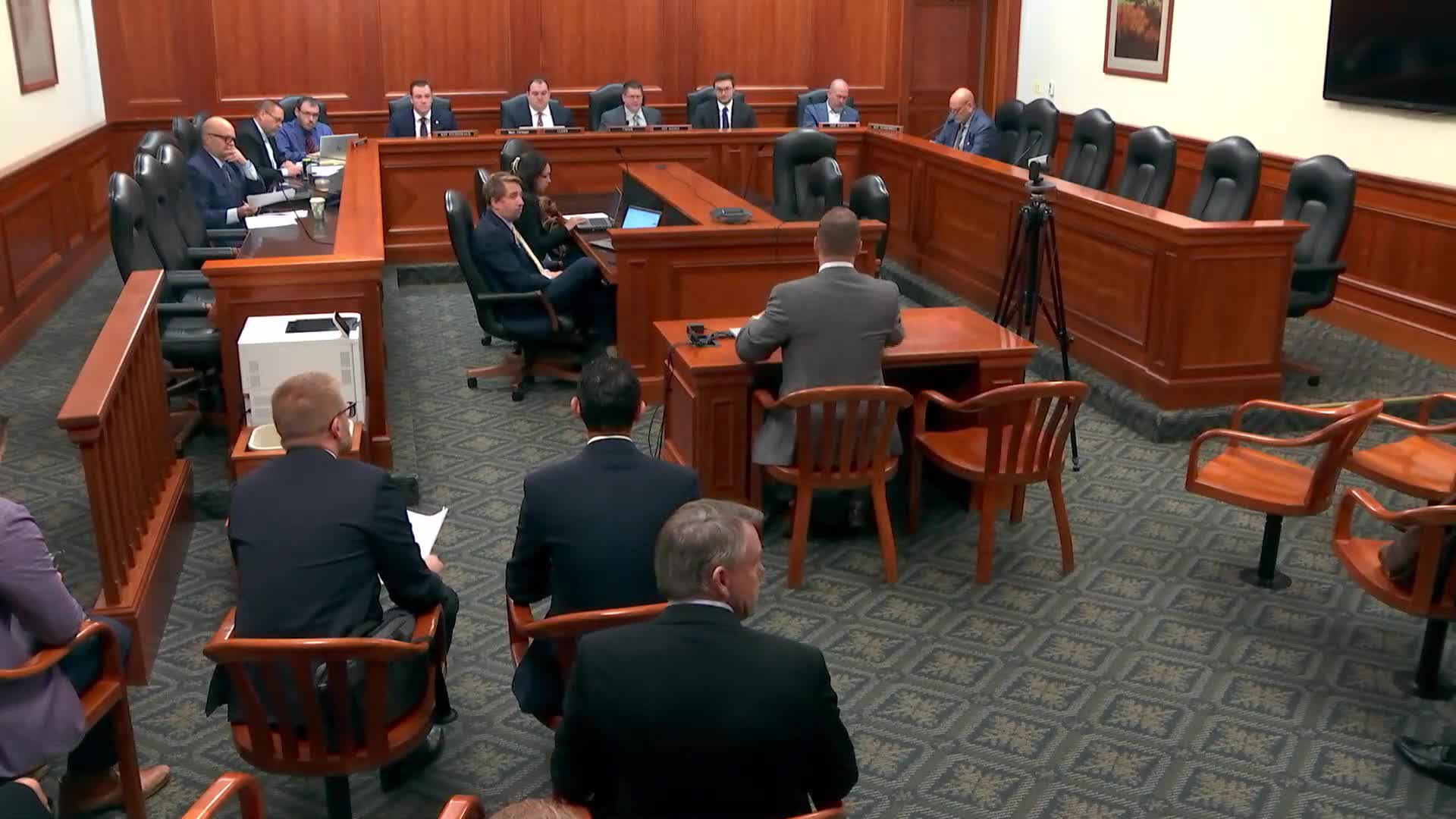Committee hears bills to allow crypto mining in industrial zones and authorize limited state crypto reserve; testimony split
Get AI-powered insights, summaries, and transcripts
Subscribe
Summary
Representative Brian Pustumas told the committee two bills would (1) allow digital‑asset mining as a permitted use in industrial zones and (2) permit a capped-state strategic crypto reserve under specified guardrails in custody and asset eligibility.
Representative Brian Pustumas introduced two bills—House Bill 4085 and House Bill 4087—proposing (1) that digital‑asset mining be a permitted use in areas zoned industrial and (2) that the state treasurer be authorized to hold a limited strategic crypto reserve under specified guardrails.
"I fundamentally believe that sometime in the near future ... digital assets and cryptocurrency will be the foundation of the financial world," Representative Brian Pustumas told the committee as he outlined the bills' goals to update Michigan law and create regulatory guardrails.
Kevin Wysocki, head of policy at Anchorage Digital, testified on custody and operational safeguards for a strategic reserve. Anchorage Digital, he said, operates a federally regulated digital-asset bank and uses air‑gapped hardware security modules and segregated accounts. He described two custody options in the bill—qualified custodians (for example, regulated banks) and secure self‑custody solutions—and warned that cryptocurrencies are bearer assets that require careful custody controls. Wysocki also noted that New Hampshire, Arizona and Texas have enacted similar strategic‑reserve legislation.
Thomas McCarthy of Satoshi Action Fund, a nonprofit advocacy group, argued HB 4085 would ensure mining is treated like other data‑center uses in industrial zones and would attract investment and high‑paying tech jobs to rural areas. McCarthy said bitcoin mining can act as an interruptible load that supports grid stability and can use underutilized renewable generation.
Judy Allen, director of government relations for the Michigan Townships Association, testified in opposition to HB 4085. Allen described the bill as a preemption of local zoning authority that would remove the local special‑use permit public‑hearing process and require a one‑size‑fits‑all treatment across industrial districts. "Under this bill you would eliminate that transparency," she said, adding that local units commonly use multiple industrial‑zone categories (for example, light and heavy industrial) and must be able to apply different standards.
Other written or read‑in positions included a support card from Jeff Anderson of Michigan CLASS and read‑in opposition from the Michigan Environmental Council, Sierra Club and Climate Cabinet, among others.
Key policy details discussed in testimony and sponsor remarks: - Strategic reserve cap: the bill would authorize (but not require) the state treasurer to invest up to a capped percentage of available funds in specified digital assets; testimony described a 10% statutory cap on specified funds in draft language, but witnesses said the bill is permissive and contains guardrails. - Asset standards: testimony described qualifying assets as exchange‑traded funds or spot cryptocurrencies that meet federal regulatory standards; Representative Pustumas and witnesses discussed a market‑cap floor mentioned in the draft (witnesses cited a $250,000,000,000 market‑cap threshold as an example, which at the time of testimony would include Bitcoin and Ethereum). - Custody and security: the bill enumerates custody considerations and allows qualified custodians or approved secure‑custody solutions; witnesses emphasized the operational difference between bearer crypto assets and traditional securities and the need for audited custody solutions. - Zoning preemption: opposition centered on removal of local special‑use review and the potential for industrial‑zone standards to be applied without a public hearing.
There was no committee vote on HB 4085 or HB 4087 at this meeting. Committee members asked questions about volatility, appropriate allocation levels and whether other states have implemented similar measures. Several witnesses and members suggested conservative initial allocations (for example, panelists said a modest 1%–3% pilot allocation might be prudent) and emphasized state and federal custody standards.
Ending note: The hearing gathered technical and policy testimony spanning economic development and local‑government land‑use authority; opponents urged preserving local zoning review while industry witnesses urged statutory clarity and custody safeguards.
